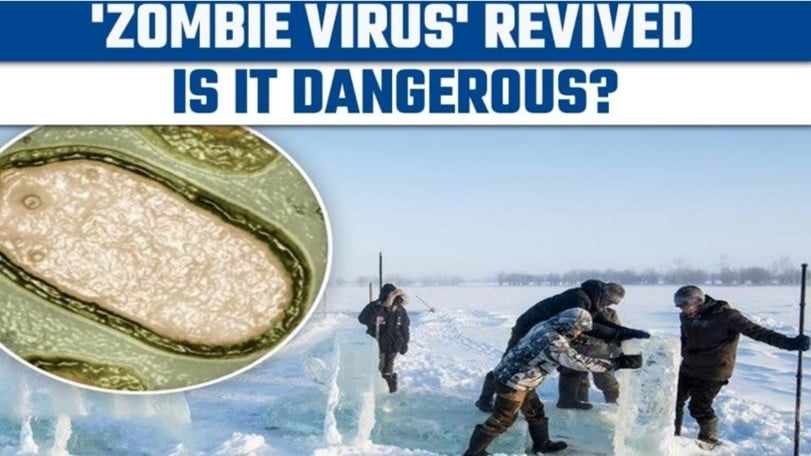Governance, Science and Technology
In News: European researchers have raised concerns of yet another pandemic after resurrecting a 48,500-year-old ‘zombie virus’ from a frozen lake in Russia.
Climate change-induced thawing of the permanent frozen land (permafrost) in the Arctic could pose a new public health threat.
About Zombie Virus:

- Zombie virus is the term given to a virus that is frozen in ice and therefore dormant.
- The virus emerged due to the thawing of permafrost as the global temperature is rising.
- It is a group of viruses which have been dormant for thousands of years.
- It is dubbed Pandoravirus yedoma after the mythological character Pandora which was 48,500 years old and has the potential to infect other organisms.
- It was discovered below the bottom of a lake in Yukechi Alas in Yakutia, Russia.
Major cause of Zombie Virus:
- One-quarter of the Northern hemisphere is underlain by permanently frozen ground which is referred to as permafrost.
- Due to climate warming, irreversibly thawing permafrost is releasing organic matter frozen for up to a million years and most of which decomposes into carbon dioxide and methane which further enhances the greenhouse effect.
- Part of this organic matter also consists of revived cellular microbes (prokaryotes, unicellular eukaryotes) as well as viruses that remained dormant since prehistoric times.
Potential threats:
- All of the zombie viruses have the potential to be infectious and hence pose a health danger.
- It is believed that pandemics like Covid-19 will become more common in the future as melting permafrost releases long-dormant viruses.
Source: Down to Earth











